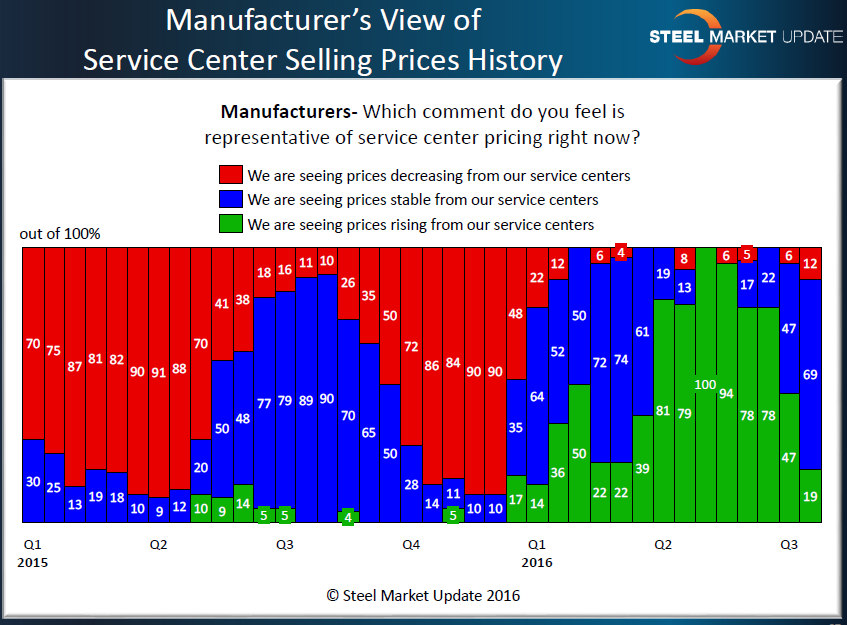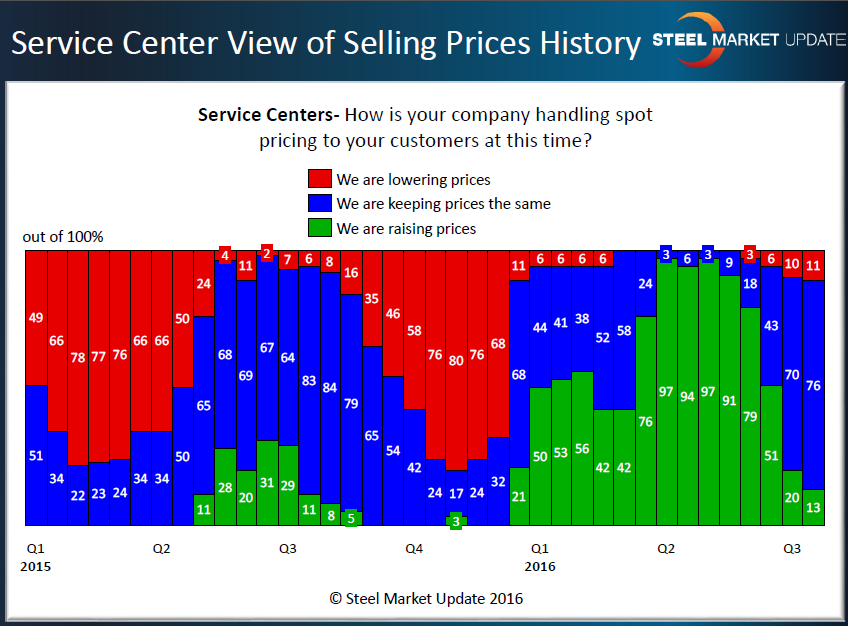Prices

July 23, 2016
Distributor Spot Prices No Longer Rising
Written by John Packard
Service centers support for higher spot prices has deteriorated over the past couple of months according to our latest survey results. Manufacturers reported distributors as backing away from raising spot prices on flat rolled products. This is a big change from what they were reporting just one month ago when 78 percent of the manufacturers reported service centers increasing spot pricing. Last week that percentage dropped to 19 percent. At the moment manufacturers are reporting spot prices as being stable.
Manufacturers were not the only ones who recognized that there has been a shift in the service center spot market. Service centers also reported that the push for ever higher spot prices has lost its luster and stability is now the name of the game.
The question is for how long can price stability last? As you review the two graphics one thing should catch your eye. Its seems that two to two and a half months is about as long as price stability can last.









